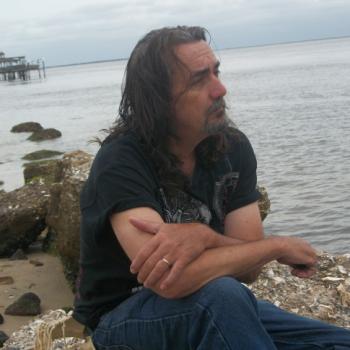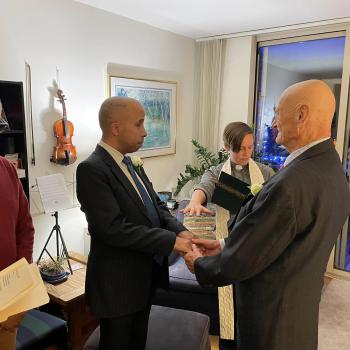For Jesus in the Garden, however, the question is whether the disciples will continue to be true to the revelation of love they have already received. In the absence of his presence and the presence of persecution, will they be able to remain faithful to the Father as he has? After all, "The world hath hated them, because they are not of the world, even as I am not of the world" (Jn. 17:14).
As Jesus told the apostles at the Last Supper, "They shall put you out of the synagogues: yea, the time cometh, that whosoever killeth you will think that he doeth God service. And these things will they do unto you, because they have not known the Father, nor me" (Jn. 16:2-3). Those who follow Jesus know both the Father and the Son (cf. Jn. 14:9), but the world knows neither so it cannot understand those who follow them. It responds with hatred and murder—there are real persecutions of Christians and other believers today.
Happily for most of us, today the murder of believers is more likely to be metaphorical than physical. It is likely to be the murder of indifference or, at best, out-of-hand rejection as irrelevant. Such hatred is perhaps, ultimately, all the more powerful because it is so difficult to oppose. You can fight your enemies. You can perhaps give into them. But how do you relate at all to those for whom you are irrelevant?
So the disciples must remain in the world that hates them (Jn. 17:15) even though, like Jesus, they are already beyond it, subject to a different order of things. The world cannot but find them shameful, detested, to be avoided and mocked—or ignored—because they are not within it. Jesus' followers do not measure as the world measures. They do not value what the world values. They do not see as the world sees.
Indeed, true Christians see what the world does not, the revelation of the Father as love given in Jesus, and they find themselves together, unified, in that love. In the conflict between the order of the world and the order of loving trust, Jesus prays that God keep them together in love and apart from "the evil one" (Jn. 17:15). He prays that they may not fall back into the order of the world, the order of hatred and evil, and he provides a means for them to avoid that fall.
Indeed, intent on providing strength to remain together in love, Jesus has already promised the disciples "another Comforter" (Jn. 14:16), someone else to come to their aid, someone to stand beside and strengthen them. The world cannot know that Comforter (Jn. 14:17), but the disciples know him, and he testifies of Jesus (Jn. 14:26) as Jesus testifies of the Father. The Holy Spirit, with us in Jesus' absence, also testifies of the unity of divine love.
The unity of the children of God is the unity of the Father, the Son, and the Holy Ghost, a unity manifest in the revelation of God as love. That manifestation shows itself in Jesus' life, death, and resurrection, and it is witnessed by the Holy Spirit. We are made strong—comforted—by that revelation.
Whatever our doctrinal disagreements, whatever our differences about authority or scripture, more fundamental than all such questions (which may yet be important) is the question of whether we imitate the love manifest in the Godhead. Love of others—those within the family of God and those without, those who love us and those who do not—is the first test of our membership in that family, and it may be the last.
*George R. Beasley-Murray, Word Biblical Commentary: John (vol. 36), 2nd ed., Bruce R. Metzger, David A Hubbard, & Glenn W. Barker, eds. (Dallas, TX: Word: 1999), 299.





